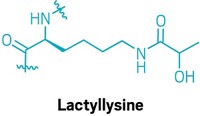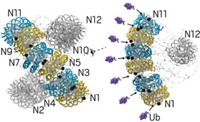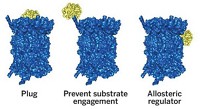Advertisement
Grab your lab coat. Let's get started
Welcome!
Welcome!
Create an account below to get 6 C&EN articles per month, receive newsletters and more - all free.
It seems this is your first time logging in online. Please enter the following information to continue.
As an ACS member you automatically get access to this site. All we need is few more details to create your reading experience.
Not you? Sign in with a different account.
Not you? Sign in with a different account.
ERROR 1
ERROR 1
ERROR 2
ERROR 2
ERROR 2
ERROR 2
ERROR 2
Password and Confirm password must match.
If you have an ACS member number, please enter it here so we can link this account to your membership. (optional)
ERROR 2
ACS values your privacy. By submitting your information, you are gaining access to C&EN and subscribing to our weekly newsletter. We use the information you provide to make your reading experience better, and we will never sell your data to third party members.
Biological Chemistry
RNA's role inblood coagulation
April 9, 2007
| A version of this story appeared in
Volume 85, Issue 15
If you thought RNA's responsibility in a cell was limited to orchestrating and silencing the conversion of DNA into proteins, think again. Researchers have found that RNA also plays a part in coagulating blood near a wound. When a cut severs the cell lining of a vein, blood components called platelets race to the scene to physically stem blood loss. Next, a complex series of enzymes coagulate blood and catalyze fibrin formation to tightly seal the wound, a necessary step in tissue repair. Klaus T. Preissner, a biochemist at Justus Liebig University, in Germany, and his colleagues show that RNA that has spilled out from damaged cells helps to activate two coagulation enzymes called factor XII and factor XI (Proc. Natl. Acad. Sci. USA 2007, 104, 6388). The researchers find that adding an enzyme that breaks down RNA impedes these repair proteins from doing their job. Furthermore, injecting RNA into animal models initiates coagulation.





Join the conversation
Contact the reporter
Submit a Letter to the Editor for publication
Engage with us on Twitter